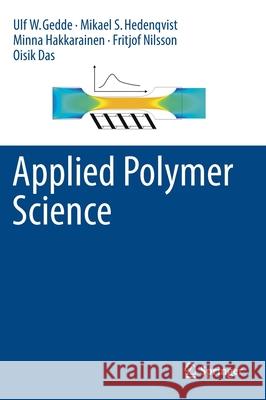Applied Polymer Science » książka
topmenu
Applied Polymer Science
ISBN-13: 9783030684716 / Angielski / Twarda / 2021 / 551 str.
Applied Polymer Science
ISBN-13: 9783030684716 / Angielski / Twarda / 2021 / 551 str.
cena 563,56
(netto: 536,72 VAT: 5%)
Najniższa cena z 30 dni: 539,74
(netto: 536,72 VAT: 5%)
Najniższa cena z 30 dni: 539,74
Termin realizacji zamówienia:
ok. 16-18 dni roboczych.
ok. 16-18 dni roboczych.
Darmowa dostawa!
Kategorie BISAC:
Wydawca:
Springer
Język:
Angielski
ISBN-13:
9783030684716
Rok wydania:
2021
Wydanie:
2021
Ilość stron:
551
Waga:
1.17 kg
Wymiary:
25.4 x 17.78 x 3.02
Oprawa:
Twarda
Wolumenów:
01
Dodatkowe informacje:
Wydanie ilustrowane











